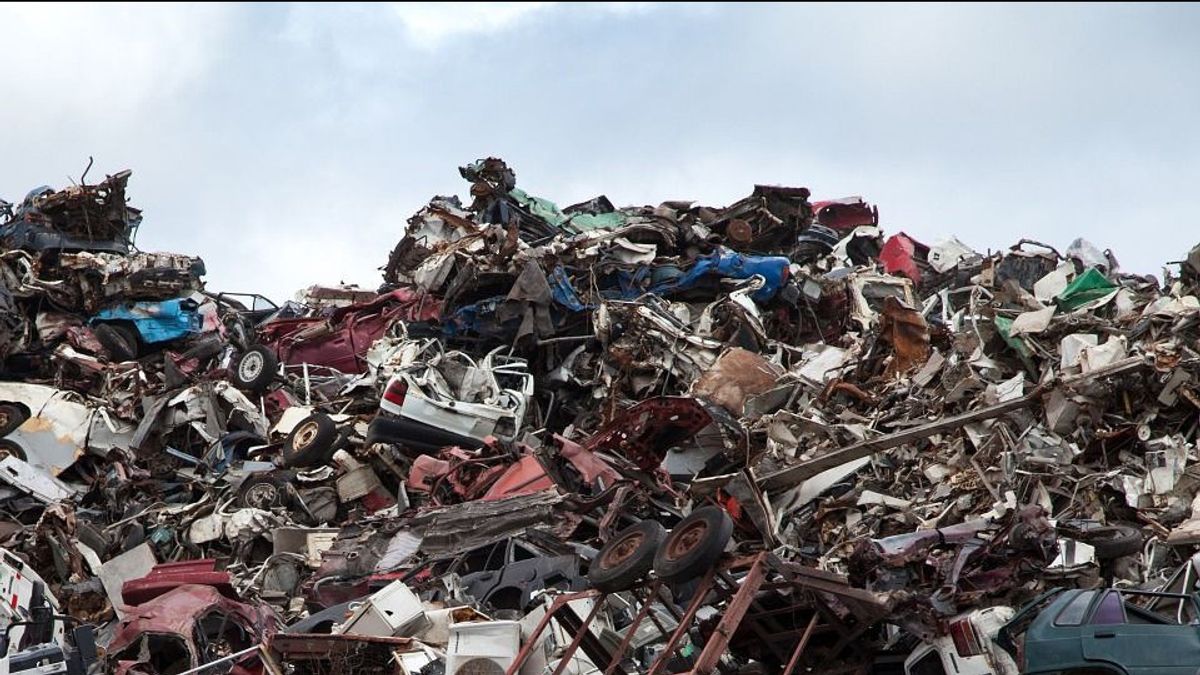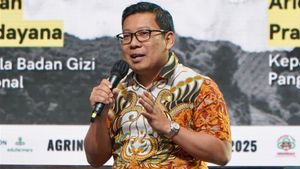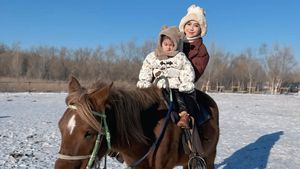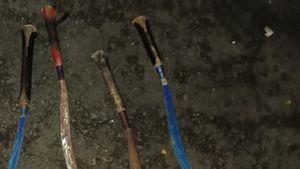JAKARTA - A viral video shows a hippopotamus in Taman Safari Indonesia (TSI) with a plastic bottle in its mouth. The trash thrower is a 64 year old grandmother. The grandmother admitted that she made a mistake. In a more structured context, we remember, in Indonesia, some animals are indeed fed garbage. Cows, we mean.
The grandmother's name was Khadijah. His apology was uploaded by the Instagram account @taman_safari. Khadijah is known to be a resident of Cicalengka, West Java.
In the apology video, Khadijah admits that he is sorry. He also mentioned by accident, mistake, or other similar reasons which emphasized that throwing trash into the mouth of a hippo was not his conscious intention.
"Yes, I regret it, apologize to all of Indonesia and all Taman Safari, I am very sorry. I am sorry. Wrong," he said, quoted by VOI, Tuesday, March 9.
"Don't follow me, I was wrong all over Indonesia ... I threw it, accidentally," added Khadijah.
Garbage-eating cows in BantulBut, really. In Indonesia, some animals do eat garbage. Even on purpose. And if you think it's an old issue, don't you think so. Last July 2020, when it was time to approach Eid al-Adha, the news about cows eating garbage at the Piyungan Integrated Waste Disposal Site (TPST), Bantul, Yogyakarta Special Region became a serious topic of discussion.
Tagar.id reported the condition of the cows, which were described as not fat, but also not too thin. What is clear is that all the cows have sad eyes. The number of cows is not small. There are 1,100. The owners of the cows are residents around TPST Piyungan. Even if there are cows belonging to people from outside the TPST area, they usually work together with local residents.
Maryono, Head of the TPST Piyungan Scavenger Scavenger Community, told of the risk of death experienced by the cows. According to Maryono, there are three most common causes of death for cows. First, the effect of drinking wastewater. Second, food poisoning that contains rat poison. Third, run over by heavy equipment operating at TPST.

Even so, Maryono denied that the cows that ate garbage were selling cows for Eid al-Adha sacrifices. According to Maryono, the existence of the garbage-eating cows has been monitored by the local Health Office. The Health Office has also made a provision that the cows that eat garbage must be quarantined for at least three months if they are to be sold.
After all, selling garbage-eating cows is said to be too dangerous for the Dutch - livestock sellers - themselves. The Piyungan PTST Management Technical Implementation Unit officer, Ibnu Zulkarnanto, said that if the buyer finds out that he received the cattle from the TPST, then that is the end of the cooperation relationship between the Dutch and the cow buyers.
Even so, Ibnu said, cows from TPST are usually slaughtered first in one of the slaughterhouses not far from TPST. The distribution is usually carried out when the cows have become slaughtered meat.
Risks of consuming trash-eating beef
In another July of 2018, a similar case was found in the same location. At that time, Mongabay was the one who reported. According to the news, cows eat organic and inorganic waste. Uncontrollable at all. And looking at what happened two years later, it seems that this problem was not fixed by the authorities at all.
Edi Suryadi, lecturer at the Faculty of Animal Science, Gadjah Mada University, asked the public to be aware of this cheating mode. Never buy cows that are raised from the environment around the garbage dump. Most likely, said Edi, the cows have been contaminated with various diseases.
According to Edi, the trash-eating beef may contain heavy metals and other dangerous substances. Apart from being contaminated with heavy metals, cows that eat garbage also contain lots of bacteria and viruses. "Cows that eat garbage have many sources of disease," he said.

In 2015, the Institute for Research and Community Service (LPPM) Universitas Sebelas Maret Solo conducted this related research. The study found plumbum or lead chemicals that exceed the threshold in waste-eating beef.
And not only at TPST Piyungan, Bantul. In 2017, the research took samples from eating beef until TPA Putri Cempo, Mojosongo, Surakarta. The cows at that location were also declared unfit for consumption. Similar to previous research, Putri Cempo landfill cows also contain high lead that exceeds the threshold.
The study showed a figure of 13-17 ppm (parts per million) of lead is harmful in old waste-eating beef. Meanwhile, for cows that eat new waste, the lead content is in the number 1.46 to 1.7 ppm. This figure is above the lead content threshold set by the Food and Drug Administration (BPOM), which is 1 ppm.
BERNAS OthersThe English, Chinese, Japanese, Arabic, and French versions are automatically generated by the AI. So there may still be inaccuracies in translating, please always see Indonesian as our main language. (system supported by DigitalSiber.id)









